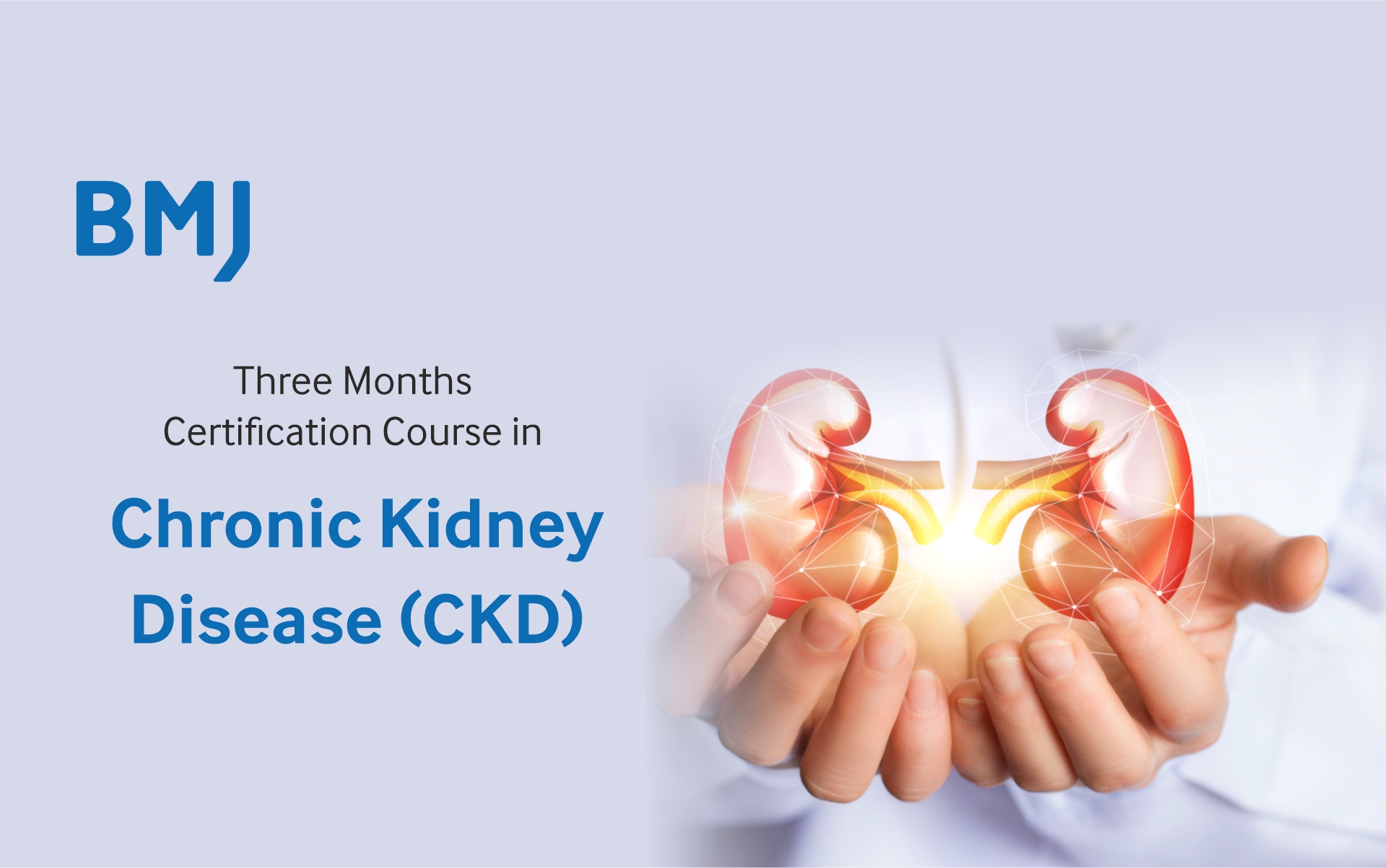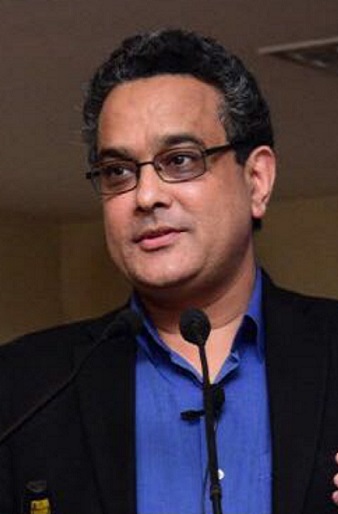
Curriculum
| Three months certificate course in chronic kidney disease | Curriculum |
Fees
| INR 25000/- | Apply Now |
About this course
Certification course in CKD from BMJ & Manipal Academy of Higher Education (MAHE) aims to cover the pathophysiology, presentation, diagnosis of CKD and its complications and treatment of CKD. We believe this course will help clinicians to provide better kidney care to their patients. Post completion of 3 months e-Learning, the course offers 3 days clinical observership at KMC Manipal under the supervision of subject matter expert.
3 Days contact programme at MAHE
To apply for the course, please click here
About MAHE
Manipal Academy of Higher Education (MAHE) is one of India's leading academic and research institutions. It has been granted Institution of Eminence status by the Ministry of Education, Government of India. Manipal Institutions have long been distinguished for excellence in professional education. The University is home to some of the top ranking institutions across diverse disciplines.
Course Directors

Dr. Saurabh Pokhariyal
HOD, Nephrology and Renal Transplantation, Manipal Hospital, New Delhi
I would like to welcome you to this course on chronic kidney disease (CKD). As a major non-communicable disease CKD is assuming epic proportions across the world. Treatment of advanced renal disease by dialysis or renal transplantation is prohibitively expensive and in low income countries very few patients can afford such care. The focus should therefore be on preventing kidney disease or slowing the progression of CKD so that dialysis or transplantation can be avoided. We have put together a comprehensive module on diagnosing, classifying and managing all aspects of CKD and it should go a long way in helping our primary care physicians in caring for such patients.

Dr Kieran Walsh
Clinical director - BMJ Learning and Quality BMJ, UK
Dr Kieran Walsh is Clinical Director at BMJ. He is the clinical lead of the medical education and clinical decision support products at BMJ. He has a vast amount of experience in online medical education, clinical decision support, face to face delivery of medical education, and both summative and formative assessment. He has published over 200 papers in biomedical literature and has written four books: the first and only book on cost effectiveness in medical education; a dictionary of quotations in medical education; a history of medical education in 100 images; and the Oxford Textbook of Medical Education. He is a Fellow of the Higher Education Academy, a Fellow of the Royal College of Physicians of Ireland, a Fellow of the Academy of Medical Educators, and Adjunct Associate Professor at Monash University. In the past he has worked as a hospital doctor specialising in General Internal Medicine and Geriatric Medicine.
Academic Director MAHE:

Dr. Shankar Prasad N.
Dr Shankar Prasas is a Professor & HoD at the Department of Nephrology, Kasturba Medical College, Manipal. Dr Shankar Prasad N teaches undergraduates and postgraduates. He is also Involved in outpatient and inpatient care, critical care nephrology, haemodialysis, peritoneal dialysis program and transplant program.
Course objectives
After completing this course, you should be able to understand the following:
- Definition of chronic kidney disease (CKD) ,epidemiology (EPI) of CKD, common causes of CKD, different stages of CKD, indications for referral to a nephrologist and follow-up and monitoring required
- Importance of screening in early diagnosis of CKD, and its management and to know who is at high risk of developing CKD, choose investigations and to diagnose diagnose CKD
- The treatment of reversible causes of renal failure in a patient with chronic kidney disease (CKD) and measures to slow progression of kidney disease
- Information regarding monitoring and management of various complications of diabetes with particular emphasis on diabetic and hypertensive kidney disease
- CKD during pregnancy and in the elderly and children
- Timely vaccination in patients with CKD and the mandatory vaccinations that every patient with CKD should receive.
- The various kinds of vascular accesses available for dialysis, their pros and cons , and how to manage the complications associated with them
- Protein-energy wasting (PEW) and the factors associated with it and parameters used in assessing PEW in adults and children with CKD. Evidence-based requirements of key nutrients for adults and children with CKD with/out dialysis
